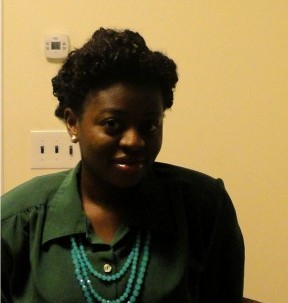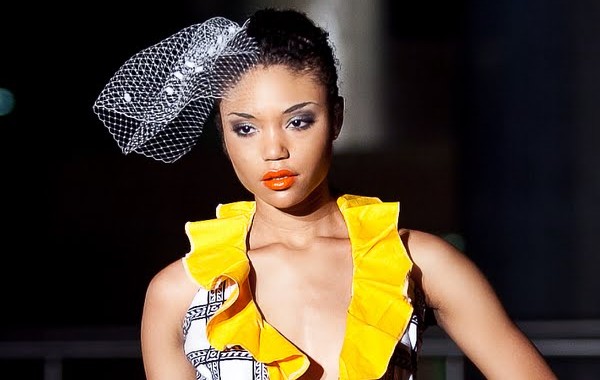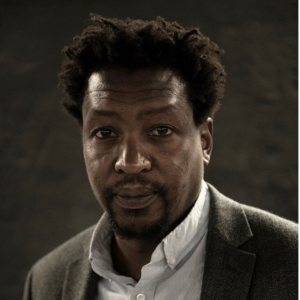Hauwa and Buba’s love is as beautiful as it is forbidden. From the savage winters of New York to the sweltering heat of Kaduna, their passionate regard for each other stood the test of time. But they must come to terms with the truth: their love is doomed. The tiny sliver of hope that their love story could end happily hangs on a choice that only Hauwa can make. A love story with so much tenderness. — Editor’s Note.
The day the call finally comes is a day like any other. I am reading aloud to Buba, just the way he likes. It is one of his favorite books too—Adam Bede by George Eliot. His feet are on my lap as he drinks from the glass of wine I poured him a while ago. Life is too good to be true so to remind ourselves of how it really isn’t. We read a book that holds more sorrow than any book should.
Buba’s phone starts to ring just as I turn the page to the beginning of Hetty’s trial and my heart skips a beat. If I were a braver woman, I would throw into a well the phone and every other thing that could intrude into this dream we are living.
‘Saanu Baba!’ Buba answers.
It is the call we have been holding our breaths for these past few weeks, and I can already tell its outcome from the way my lover’s eyes fall.
Where is he, his father wants to know. Does he realize the mess he has made out of things? Was it fair that he was holed up with another woman while his wife has seen none of him in weeks now? What kind of shame was he trying to bring on the family? All because of some gold digger?
‘Baba, Hauwa is not a gold digger. If you let me explain…’ Buba begins. ‘Baba, Baba, are you there?’
I know from the silence that follows that his father has cut short the conversation.
‘Shit!!’ Buba swears; the word, a relic from our days in New York. ‘Darling, I am sorry you had to hear that.’
I shake my head to show him it is alright.
‘I should see about dinner.’ I say putting Hetty and her sorrows aside.
‘Come here.’ He says, his hands outstretched and I go because food is the last thing on my mind anyway.
He takes me in his arms and nibbles my ears. He starts to move and I follow his lead. He is as graceful as a cheetah and it takes everything not to cry.
‘You realize there is no music playing.’ I say.
‘There isn’t?’ He answers with mock surprise. I start to laugh and he buries his face in the crook of my neck.
‘We knew he was not going to be happy.’
‘Yes,’
‘He will never forgive me.’
‘He will.’
‘I want to be with you Hauwa.’
‘And I, with you.’
‘It is you that I have always loved. It is you that I will always love.’
‘I know.’ I say. ‘I know.’
The few times people have asked, we told them we met when we were fifteen. Our mothers disagree and tell us we met a long time before that as toddlers. I have no recollection of our mothers’ tale and neither does Buba so we stick with what we know.
It was 2001 and I had just finished my WAEC exams. As a treat and reward for all my hard work, my mother decided to take me on her yearly trip to Dubai. The treat turned out to be a chore as all I did was trail behind her as she shopped for all of Kaduna and then some. It was on one of these shopping expeditions that we ran into Buba and his mother. One minute I was grumbling about how horrible Dubai was and the next, I was staring into the brown eyes of the most beautiful boy I had ever seen.
‘Hajiya Bature!’
‘Hajiya Dogo! What a surprise! How are you? It has been so long. Is that Buba? Oh my goodness, look how handsome he is. This is Hauwa. Buba, don’t you remember her? She took away your sweets at your 3rd birthday party and you cried and cried.’
I groaned as my mother attempted to embarrass me with tales of a forgotten childhood. Buba just smiled, taking it all in his stride, his eyes never leaving my face. Maybe it was the tiresomeness of our mothers. Maybe it was the heat of Dubai or the lonesomeness of being away from home. Maybe it was all of this or maybe it was fate. All I know is for the rest of the trip, I and Buba were inseparable.
We never talked about how we felt. Even as teenagers we knew better. We were from different worlds; Buba’s father was Kaduna’s most prominent politician, a kingmaker of sorts. My father did well for himself with his medical practice but we were not cut from the same cloth as Buba’s family. It was the 21st century yet Northern Nigeria was still firmly in the grip of a caste system that no one wanted to acknowledge.
But we were in Dubai for the time being and Kaduna was a million miles away. Our mothers went about their shopping and we went about falling in love. We talked about everything else during that trip—books, movies, Kaduna, our dreams, and even religion, but never about the way his eyes lit up when they saw me or the way butterflies I never knew resided in my belly danced when he held my hand. In the afternoons, we shared opinions on everything under the shade of the hotel lobby. In the evenings, when the sun had relented on its assault, we walked the streets of Deira hand in hand. He kept buying me things I did not know I needed. Leather sandals for my feet to replace the sneakers I had brought along with me from Kaduna. A gold veil because it went well with the shade of my skin. Sands from the desert for luck.
Back in Kaduna, our friendship took on a different flavor. We still couldn’t bear to be apart but now we were surrounded by our families and people who knew us so that when we walked the streets of Malali, we did so without holding hands and when we dreamed, it was with less hope.
My mother made meaningful noises every time I told her I was going out with Buba, but I was her only daughter and she had never really learned how to refuse me. I don’t know what his mother said to him, but she was always kind whenever I visited.
Time passed slowly as it always does when one is young and in a hurry to grow up. Buba got into Cornell, and I somehow convinced my Baba that Columbia was a good place to begin my journey to medical school. For the next four years, it was like Dubai all over again except for the cold winter semesters. I and Buba spent every free weekend together. Sometimes we settled for finding treasure in the gorges of Ithaca, and other times we sought them in the flea markets of Brooklyn.
I dated a couple of guys, all of whom Buba disapproved of. For his own part, I knew he dated a few girls here and there but he never spoke to me about them. It was almost as if he was afraid to tell me. My roommate would joke that I and Buba were in a twisted kind of open relationship. Buba never laughed when she said that, so I laughed loud enough for both of us.
He graduated a few years earlier than I did and went back to Kaduna. We continued to speak every day, and he visited as often as he could. To check up on me, he said, and my roommate once again mumbled something about how we had now evolved into a ‘twisted long distance open relationship’.
I was in my fourth year of medical school when he showed up with no warning.
‘Dude! How can you come all the way from KD and not tell me you were coming?’ I said, reaching out to hug him.
‘I wanted to surprise you.’ He said.
‘Well I am surprised. Yaya kike? How’s everyone? Mama?’ I asked, reaching out to hug him.
‘I had a fight with Baba. He wants me to get married, Hauwa.’
I called in sick and we spent the rest of the day watching Grey’s Anatomy and drinking wine.
‘So I get why I am sad, but what I don’t get is why you are sad?’ He said to me after the 6th or 7th episode we had seen. Maybe he was drunk and that made him brave enough to go to a place we had never before dared. But courage for love takes two, and I had none. I said nothing, handed him another glass of white wine, and he married Laraba two months later.
I threatened my mother that I would elope if she even attempted to mention the tiniest detail of the wedding over the phone. My roommate stopped mumbling and made me chicken soup a couple of times because it was a family recipe guaranteed to cure heartbreak. I asked her how many heartbreaks there had been in her family. She shrugged and said ‘Plenty enough.’ I laughed and then cried while she held me.
Buba called a few times after the wedding but I couldn’t bring myself to answer and sound cheery so I emailed to say school was keeping me busy instead.
I passed my final exams and moved back to Kaduna to join my father in his practice. I met Abdul soon after and tried my best to ignore the way everything in the city was a gentle reminder of Buba.
One Thursday in late August, eight months after his wedding, I ran into Buba at Ramat.
‘Hauwa! You are in town?’
‘Hey Buba.’ I answered as cooly as I could manage.
‘Since when do you come into town and don’t tell me?’
‘Since you got married?’ I said trying not to sound bitter but failing.
His eyes darkened. He paid for the things I had come to buy at Kaduna’s excuse for a mall and pulled me into his car. We said nothing for a while and then he started to speak.
‘I really thought I wanted to do the whole politics thing but the more time I spend with these people, the more confused I am. Sometimes I can’t even tell if I ever wanted it or if it was just about not failing Baba. I married a woman I do not love because I did not want to fail him. I am building a career that feels like a fraud because I am afraid to fail him. I feel like a fraud every time I tell Laraba that I love her. I feel like a fraud when I shake hands with people making promises I might never be able to keep…’
‘But I love Kaduna and I tell myself that maybe if I work hard at it, I can heal this place and get back the KD we grew up in. A place where Christians and Muslims can roam the streets free, brothers instead of enemies. A place where young boys are in school and not on the streets as Almajiris. A place where… ‘
‘I love you, and it doesn’t feel like a fraud.’ I cut in.
It had been a long week, and I was tired. It had started out with my mother calling me to remind me of how at 28, my eggs were facing extinction and needed fertilizing. The sun had not let up all week, beating down on man and animal alike, determined to make us pay for the sins we had committed with the rains of the previous week. Abdul was demanding commitment amongst other things that I couldn’t give. These and other mundane things were what I chose to blame for the thing that came out of my mouth. It came out and I couldn’t take it back. I didn’t want to take it back.
It has been 2 weeks since and Buba has practically moved in with me. He goes to work, avoids his father and comes straight home to me. It is everything I dreamed and more. I called my mother and told her. She cried, calling me a fool and then recovered fast enough to ask me about wedding plans. Buba called his mother and she said ‘Allah ya isa! Now, what do we do about your father?’
Buba tells me we have two options—he can divorce Laraba, marry me, lose both the elections and his father or he can stay married to Laraba, most likely win the elections and patch things up with the old man. There is a third option neither of us have ventured to speak about but late at night, when Buba is snoring softly. I have wondered if it will be so bad to be a second wife.
‘You are the woman I love and that is all that matters.’ He says, bringing me back to the present. His words are a perfect accompaniment to music that only we can hear.
‘We can make this work, Hauwa,’ He adds, almost pleadingly.
‘And Laraba? Baba? Your dreams for Kaduna? You would give up all of that for me?’ I ask as we continue to dance.
There is no hesitation in the ‘Yes’ that answers my question and that is how I know whose decision this really is. It isn’t Buba’s. It has been mine all along.
‘I will go pack your things.’ I tell him.
He wants to speak, but I stop him with a kiss. There is nothing to say so we dance instead. And when that dance stops, we take off our clothes and start another .
‘It was always you, Hauwa, and it always will be.’ Buba says to me as I walk him to the car where Mahmood, his driver waits with eyes averted from the sadness that is our love. Buba takes my hand, kisses it and is gone.
‘Goodbye Maigida.’ I whisper to the emptiness that he forgot to take with him.
It takes a few months but my mother gets her wedding date. She tells me I will grow to love Abdul. He is a good man and loves me. Thrice now, she has caught me staring into the distance as we haggle with cloth traders over the price of this wedding lace and that engagement Ankara. She comforts me by telling me that so what if Buba was first, what matters in marriage is who I let be last and who lasts. Maybe she is right. Maybe if enough time passes, I will even be happy.
For now, I wait till it is dark, till there is no one here to see, till it is just me and the memory of he who was first; before finding courage to love, courage to dance, to music only I can hear.
***
Post image via Kachi Designs, a Houston based fashion designer. Check out more of Kachi’s pieces HERE.
 Kiah is a huge fan of short stories and ‘Music Only We Hear’ is one of the few stories of more than 2000 words that she has tried her hands on. She currently lives in the New York area but grew up in Lagos. When she is not writing, you will find her cooking or being mischievous, with the later being more often. You can read more of her short stories here.
Kiah is a huge fan of short stories and ‘Music Only We Hear’ is one of the few stories of more than 2000 words that she has tried her hands on. She currently lives in the New York area but grew up in Lagos. When she is not writing, you will find her cooking or being mischievous, with the later being more often. You can read more of her short stories here.










Samuel January 07, 2016 13:44
Such a beautiful story. So sad. It felt so real--a love potent love story in the Kaduna I know and love. Great writ, Kiah!